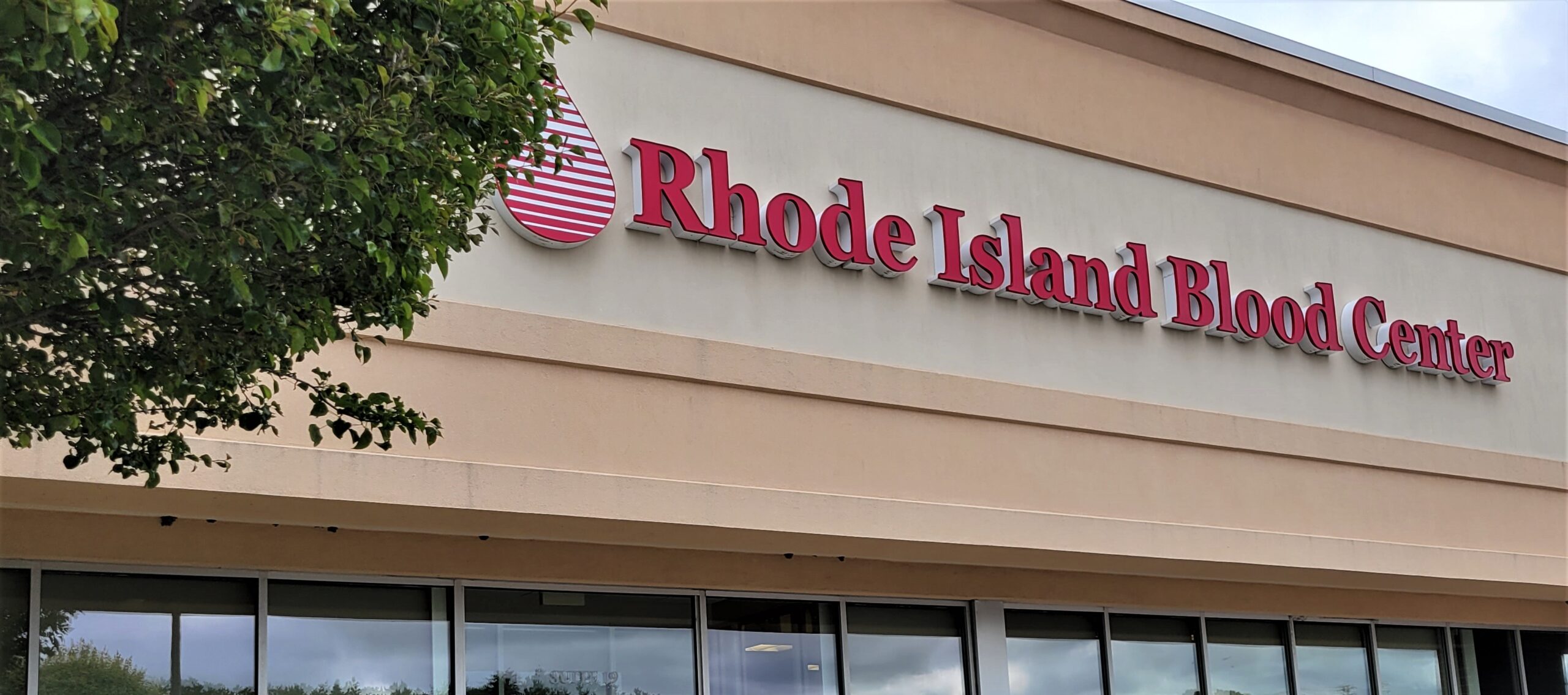Changes end what some considered discrimination against gay and bisexual men
On May 11, the United States Food and Drug Administration (FDA) issued final guidance regarding gay and bisexual men donating blood.
According to the American Red Cross Blood Service, the guidance “[regards] an individual donor assessment for all blood donors regardless of gender or sexual orientation.” It replaces practices that some had described as discriminatory.
In announcing its final guidance, the FDA in a media release stated that eligibility will now be assessed “using a set of individual risk-based questions to reduce the risk of transfusion-transmitted HIV. These questions will be the same for every donor, regardless of sexual orientation, sex or gender. Blood establishments may now implement these recommendations by revising their donor history questionnaires and procedures.”
These final regulations come after many others have been put in place by the FDA – the first in 1983 when a permanent lifetime ban was put on gay and bisexual men donating blood among the beginning of the AIDS crisis – according to a CNN article.
The lifetime ban spanned from 1983 until December 2015, when the FDA removed the ban and replaced it with a 12-month deferral for men who have sex with other men (MSM). On April 2, 2020, the FDA replaced the 12-month deferral with a three-month deferral. The FDA stated that these bans were supposed to be efficient in eliminating 90% of donors who may be carrying a blood-borne disease.
The Wisconsin Department of Health Services defines a blood-borne disease as “microorganisms that cause disease and are present in human blood.” These diseases include but are not limited to HIV, hepatitis and syphilis.
According to the Human Rights Campaign, the FDA deferred gay and bisexual men from giving blood for so long because they have “a higher incidence of [blood-borne] disease,” as these diseases are frequently spread through anal sex. However, these deferrals have been denounced as discriminatory by many.
“The shift toward individual donor assessments prioritized the safety of America’s blood supply while treating all donors with the fairness and respect they deserve,” stated Kate Fry, the chief executive of America’s Blood Centers, to the New York Times.
According to Caitlin Grimaldi-Flick, the Marketing and Communications Manager for the Rhode Island Blood Center, the FDA’s new regulations are based on the successful relaxation of rules surrounding MSM blood donation in the United Kingdom and Canada.
The Canadian Blood Services ask all donors, regardless of sexual orientation or gender, if they have had any new or multiple sexual partners within the past three months. If the answer to this question is yes, they will then be asked if they had anal sex with any of these partners. If the answer to that question is also yes, then the donor will be asked to defer giving blood for three months. This is the new criteria that has been adapted by the United States as well.

“We’re going to look at all of our donors and their history during the donor screening process and the decisions will be made from there on if they’re eligible to donate or if they’re not eligible to donate,” Grimaldi-Flick said.
According to Grimaldi-Flick, the decision surrounding blood donation regulations has always been dictated by the federal government – specifically the FDA’s Center for Biologics Evaluation and Research. Grimaldi-Flick said this is the safest way to ensure a safe blood supply.
This change in rules comes among a blood shortage in the United States. Since the beginning of the coronavirus pandemic, there has been a shortage in blood supply due to a decrease in school and office blood drives.

For Rhode Island specifically, it’s possible these new rules could help solve donation shortage issues. As of March 2, the Rhode Island Blood Center declared a “Blood Emergency” as the current blood supply stands at a level of one to two days, and type O and platelets stand at less than one day’s supply. According to America’s Blood Centers, blood centers with a supply of 3 or more days have enough blood to meet normal operating demands, while those with only a 2-day supply are running low. Centers with a day or less of blood are considered “critically low on blood” and need donations as soon as possible.
Currently, across the United States, 41% of blood centers have not reported their blood supply levels and 53% of all blood centers that have reported their blood supply levels are currently at a supply level of two days or less. Only 7% of blood centers in the United States currently have a sustainable blood supply with a three-day supply.
Grimaldi-Flick says that it’s too early to tell if the new regulations will make a noticeable change in Rhode Island’s blood supply, however, the decision to loosen restrictions is positive for the state’s blood center nonetheless.
“We have always petitioned to make decisions on science and data,” Grimaldi-Flick said. “You know, there has always been this thought that this difference deferral was no longer really needed. So we were petitioning the FDA, and not just Rhode Island Blood Center, but we are part of an enterprise – New York Blood Center enterprises. So our enterprise, along with other blood centers across the country, had encouraged the FDA to look at this and make a decision that was based on science.”

However, the social impact is something that can already be seen in the state, according to Phillip Chan, associate professor of medicine and behavioral and social sciences at Brown University, and the co-founder of Open Door Health, Rhode Island’s first LGBTQ+ Health Care Center, which opened in 2020.
Chan said he opened the clinic after being involved in HIV and STI care for over a decade. He runs it with Executive Director Dr. Amy S. Nunn.
“One thing that I’ve always heard from my patients is just about lack of primary care,” Chan said. “And I think that primary care is really important for sexual health in general and a lot of my patients that I care for, you know, identify as gay or bisexual men and or part of the LGBTQ+ [community].”
According to Chan, the former deferrals put in place by the FDA for MSM are outdated and stigmatize gay men. Chan said that although 60-70% of HIV cases are seen in MSM, there are still many gay and bisexual men who are healthy and able to safely donate blood.

However, one regulation Chan says he does not understand that is still in place is that the FDA is still not allowing individuals currently taking pre-exposure prophylaxis to donate blood.
Pre-exposure prophylaxis (PrEP) is a drug that people who are more at risk for HIV can take to prevent contracting the disease from both sex and injection drug use.
“Based on the science and evidence and everything that we know, people on PrEP, actually are lower risks of HIV,” Chan said. “In fact, it’s safer – your biggest risk would be someone who doesn’t know that they have HIV donating blood – someone who doesn’t know they have HIV and is non-PrEP. But when people are on PrEP, they’re checking in with a provider routinely and they’re getting screened routinely. So people on PrEP is actually a good thing – great thing – and there should be no reason why they’re [kept] from donating.”
According to Chan, longstanding rules such as these surrounding blood donation prove that there is still a stigma surrounding people in the LGBTQ+ community, but that steps such as this recent one taken by the FDA pave the way for more decisions rooted in science.
“We have to continue to push for equity,” Chan said. “Health equity in general and to fight stigma when it exists.”
For more information on donation regulations, interested parties are encouraged to contact the Rhode Island Blood Center.
UPDATE from Open Door, June 28:
Today, Governor McKee signed a bill into law mandating that health insurers in Rhode Island include coverage for pre-exposure prophylaxis (PrEP) and post-exposure prophylaxis (PEP) to prevent HIV infection. This is important legislation that helps improve HIV prevention efforts in Rhode Island.
This law will have tremendous benefits for the LGBTQ community and our patients.
The bill will help to limit out-of-pocket expenses, minimize prior authorizations, and requires insurers to cover both oral PrEP as well as injectable PrEP. The bill also requires that insurers cover post-exposure prophylaxis (PEP). Lastly, the bill allows pharmacists to dispense PEP and PrEP. PrEP and PEP are important public health interventions that help people who are HIV negative to stay HIV negative.
This new law will help expand access to important medications that help Rhode Islanders proactively protect themselves from contracting HIV. This law is one of the most comprehensive in the country.
RIPHI was proud to lead the advocacy effort for this important piece of legislation. Our research has demonstrated that out of pocket costs are a significant barrier for many people who need PrEP. Our patients told us this was important, and we listened!
We are grateful to Senator Melissa Murray, Senator Josh Miller, Senator Tiara Mack and Speaker Joe Shekarchi for leading the charge for this important legislation that helps protect the health of LGBTQ+ Rhode Islanders.
Thank you for supporting our work!
Dr. Amy Nunn
President and CEO
RIPHI and Open Door Health
Dr. Philip Chan
Chief Medical Officer
RIPHI and Open Door Health






